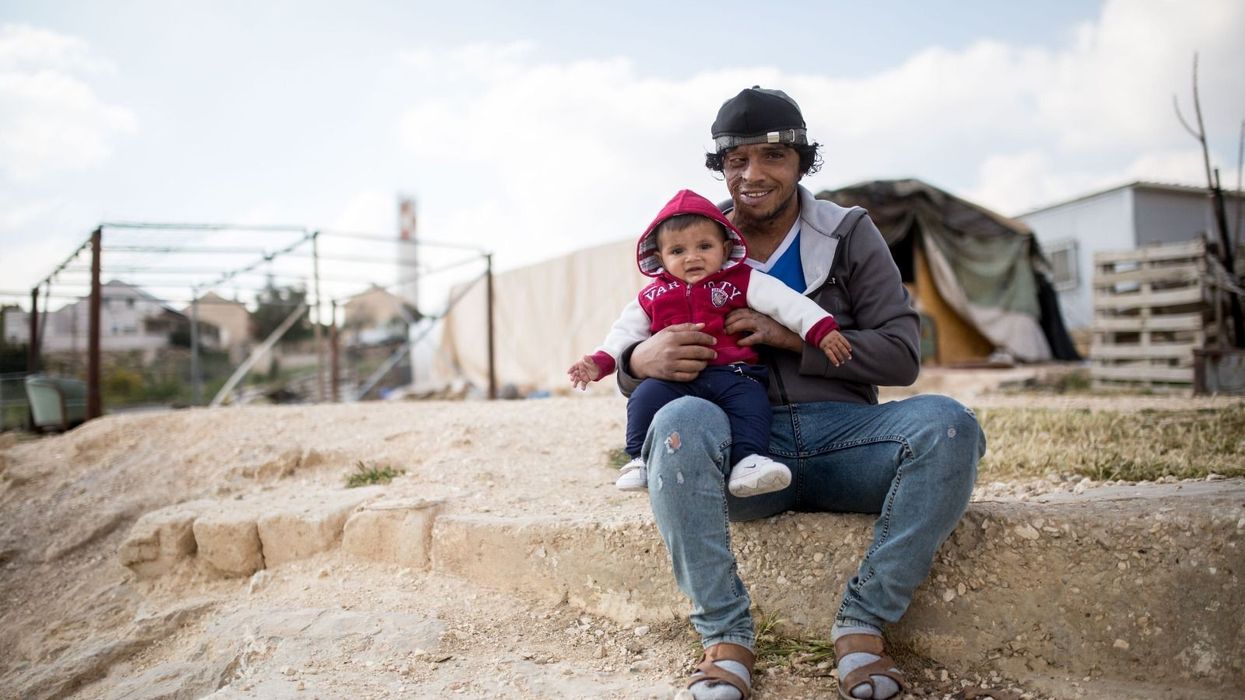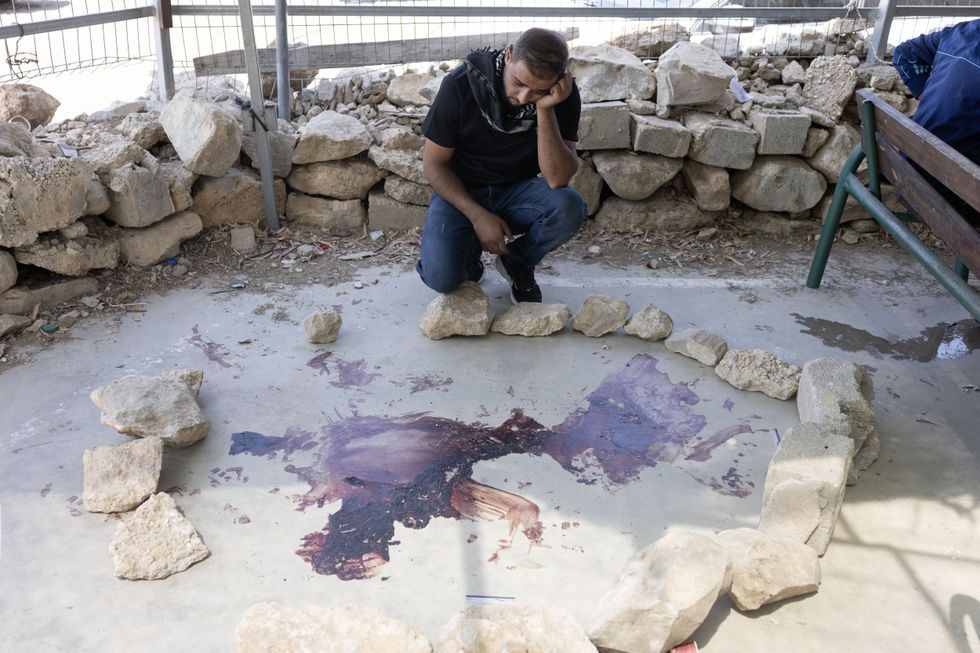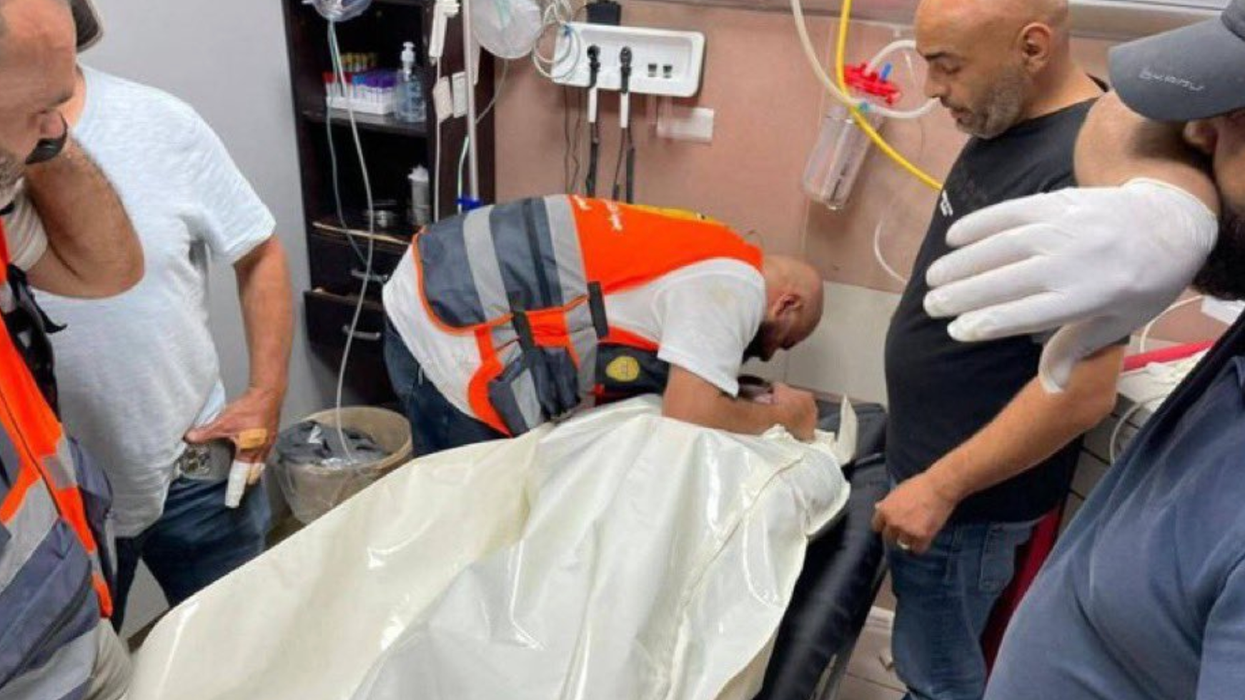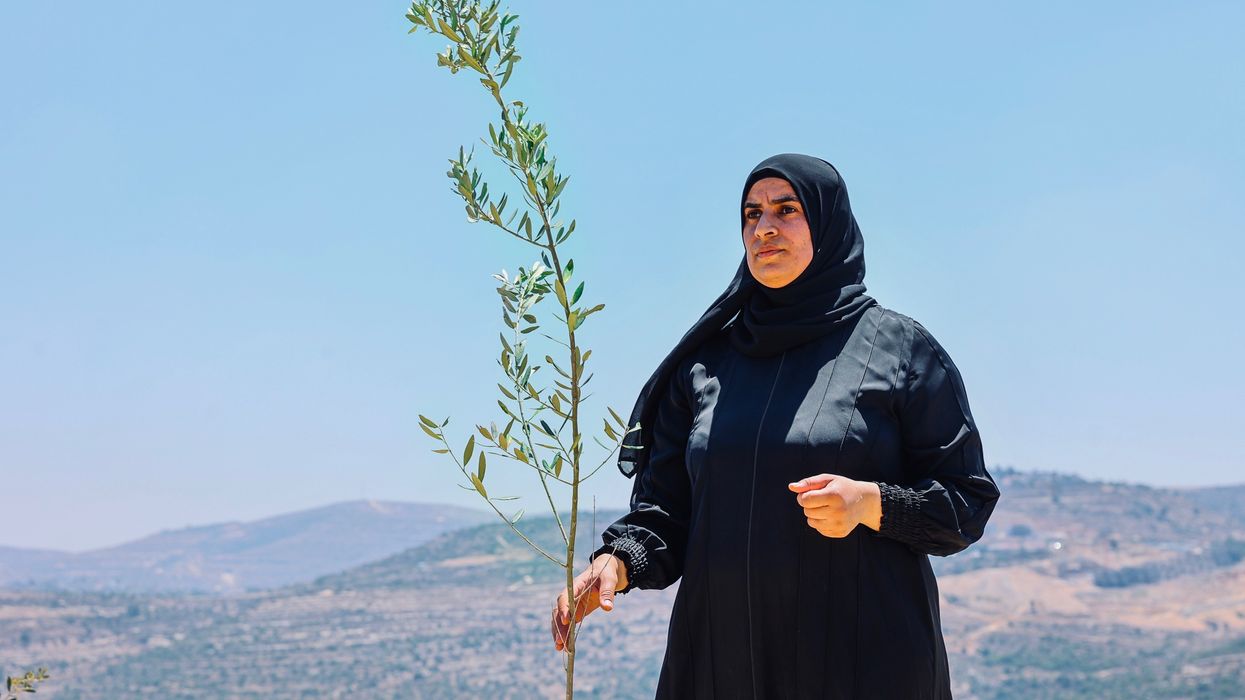Farmers won’t fight with guns, but they will plant. Again and again, they will plant.
But it’s a different kind of death, being murdered in an olive grove. It’s part of a larger colonial strategy of dislocation to sever the deep connection Palestinians have to their land. Olive trees, once symbols of peace, have become battlegrounds—and settlers, soldiers in this war of erasure. This year alone, 4,000 trees have been destroyed by settlers.
What does it mean to destroy a tree? It’s not just vandalism—it’s an attack on identity, history, and survival.
The Tree of Souls: Palestine’s Living Resistance
For Palestinians, the olive tree isn’t just a crop. It’s their Tree of Souls. Remember that scene in
Avatar when the Na’vi fight the colonizers to save the giant, sacred tree that holds their entire world together? The olive tree is that for Palestinians.
For thousands of years, olive trees have provided food, oil, income, spiritual roots, and cultural pride. They have withstood droughts, fires, and wars; held back the desert; and kept the soil from vanishing into dust. And here’s another feather in their leafy cap: Each tree quietly absorbs around 75 pounds of carbon a year. So when 4,000 trees are destroyed in a single season, it’s like leaving 300,000 pounds of carbon hanging around. Worse still, the Palestinian Farmers Union estimates that since the occupation began, 2.5 million trees have been destroyed. That’s the carbon equivalent of millions of transatlantic flights.
All of which makes farmers like Bilal the last line of nonviolent defense—not just against the occupation but environmental disaster. Farmers won’t fight with guns, but they will plant. Again and again, they will plant.
Colonization 101: The Settler’s Guide to Killing Trees
Olive trees don’t just die by accident. They’re methodically cut down, one by one, in a calculated sweep of colonization. For years, Israel has leveraged an Ottoman law allowing the state to claim uncultivated land. By destroying olive trees—trees that take years to mature and produce—they clear a path for more illegal settlements. That’s the game. It’s a slow deliberate erasure.
If even a fraction of the $18 billion in U.S. military aid to Israel were spent planting trees, we’d have hundreds of millions of trees helping transform a polarized holy land into a prosperous heartland.
Each felled tree isn’t just about clearing the land or fouling the air. Passed down like heirlooms, the trees hold a different kind of currency: history, survival, pride. Destroy them, and you don’t just take away a crop, you sever a people’s claim to the soil and connection to their past.
Without their olive trees, Palestinian farmers lose their autonomy, becoming increasingly dependent on external aid and less able to resist the encroachment of settlements. The landscape changes—slowly at first, then all at once.
Planting is the New Protest
But here’s the thing—Palestinians refuse to disappear. When Bilal was killed, we at Treedom for Palestine worked with the Palestinian Farmers Union to plant a new “Freedom Farm” for his widow, Ikhlas. She’s now a caretaker, a breadwinner, and the steward of a new olive grove—one that will nourish her family and keep Bilal’s memory alive. The grove is surrounded by steel fencing, protecting both farmer and trees.
Today there are 70 Freedom Farms across the West Bank: 17,500 more thriving olive trees, each a source of income and prosperity in a region hungry for both. But the need for more is great. In plain numbers: $30 plants, irrigates, and protects an olive tree. If even a fraction of the $18 billion in U.S. military aid to Israel were spent planting trees, we’d have hundreds of millions of trees helping transform a polarized holy land into a prosperous heartland.
Resistance doesn’t have to be violent to be revolutionary.
The Global Cost of Colonization
Settler violence against olive trees isn’t just unsettling—it’s unsustainable. Each tree felled isn’t just a lost crop; it’s a severed connection to the past and a stolen future. For Bilal’s family, the loss is deeply personal. For the world, it’s a reminder that justice, equality, and sustainability are intertwined, like the vast mycelium network beneath the soil, linking trees together in profound ways and sustaining life. As below, so above.
Above ground, the consequences of this ecological warfare ripple outward. Climate change, biodiversity loss, environmental collapse. The destruction of olive trees in the West Bank is just one battle in a much larger war.
What’s happening in Palestine isn’t far removed from us. The violence against the land isn’t just about one place—it’s about the shared fate of people and the planet. Palestine is our Pandora. If we continue to let violence against their land and people go unchecked, we’ll all pay the price. But for now, Palestinians are teaching us an important lesson: When your roots run deep, you can withstand almost anything.



 Alaa Hathaleen, Awdah's cousin, mourns at the spot where Awdah was shot by the settler Yinon Levi in Umm Al Khair, the Occupied West Bank, on July 29, 2025. (Photo: Oren Ziv)
Alaa Hathaleen, Awdah's cousin, mourns at the spot where Awdah was shot by the settler Yinon Levi in Umm Al Khair, the Occupied West Bank, on July 29, 2025. (Photo: Oren Ziv)
